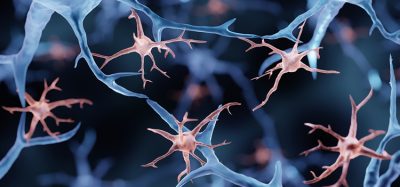SB216763 shows preclinical efficacy in Rett syndrome
Posted: 16 May 2018 | Drug Target Review | No comments yet
Researchers describe how a new drug is able to reduce the symptoms and activate the dormant neurons characteristic of Rett Syndrome…


Researchers describe how a new drug is able to reduce the symptoms and activate the dormant neurons characteristic of Rett Syndrome in preclinical models.
Rett Syndrome is the second most frequent cause of intellectual disability in women, only after Down Syndrome. The main genetic cause of Rett Syndrome is the appearance of mutations in the embryo affecting the MECP2 gene, a regulator of the expression of other genes in the genome. There is no specific pharmacological treatment for the disease, so current efforts are focused on trying to control its most serious manifestations, such as epileptic and respiratory crises.
“We knew for some years that the brains of Rett syndrome girls were inflamed, so we decided to test whether a drug that inhibits a central neuroinflammatory protein called glycogen synthase kinase-3B (GSK3B) could reverse part of the symptoms. As with any experimental treatment, we started with a preclinical model of the disease, studying it in mice that have the same MECP2 deficiency as in human Rett syndrome” says Dr Manel Esteller Director of the Epigenetics and Cancer Biology Program (PEBC) of the Bellvitge Biomedical Research Institute (IDIBELL), ICREA Researcher and Professor of Genetics of the University of Barcelona.
Biomarkers are redefining how precision therapies are discovered, validated and delivered.
This exclusive expert-led report reveals how leading teams are using biomarker science to drive faster insights, cleaner data and more targeted treatments – from discovery to diagnostics.
Inside the report:
- How leading organisations are reshaping strategy with biomarker-led approaches
- Better tools for real-time decision-making – turning complex data into faster insights
- Global standardisation and assay sensitivity – what it takes to scale across networks
Discover how biomarker science is addressing the biggest hurdles in drug discovery, translational research and precision medicine – access your free copy today
“The results have been very promising; agent SB216763 has been able to lengthen the life of the animals, significantly reducing tremors, breathing difficulties and mobility limitations. But what is really remarkable is that the inhibition of GSK3B also causes an “awakening” of the sleeping neurons of the syndrome: these brain cells are now beginning to regain contact between them and communication between neuronal synapses increases”, explains Dr Esteller. “Our findings provide a new way of improving the quality of life of these patients and now it is the neurologists’ job to demonstrate their applicability in patients with Rett Syndrome. In any case, we have to be aware that the mutation in the MECP2 gene is still there, and only by correcting it would we arrive at a definitive treatment of the disease.”
The article published has been published in the Cell Reports.
Related topics
Drug Discovery, Drug Discovery Processes, Drug Targets, Neurons, Neurosciences, Regenerative Medicine, Research & Development
Related conditions
Rett syndrome
Related organisations
Bellvitge Biomedical Research Institute (IDIBELL)
Related people
Dr Manel Esteller








